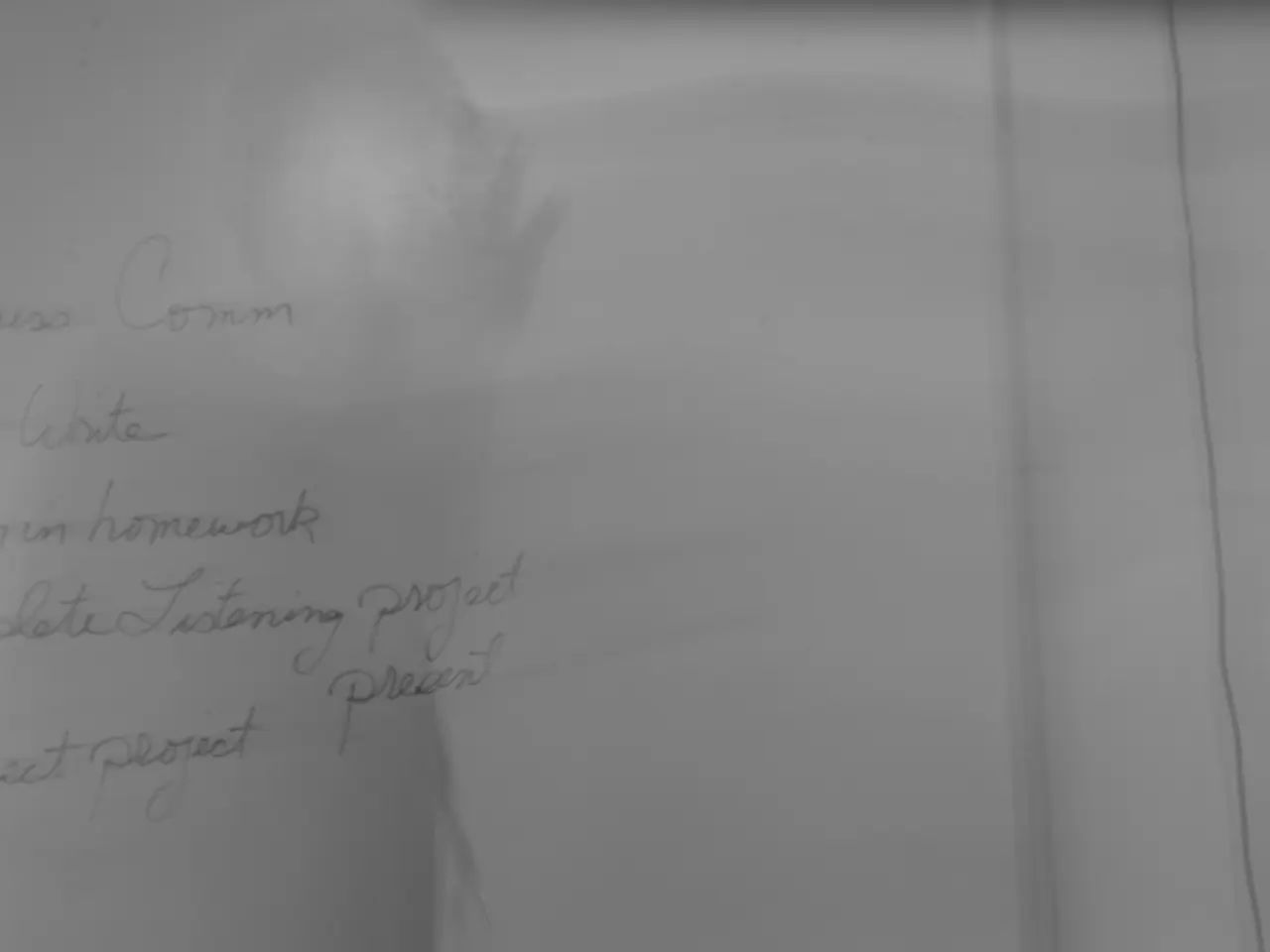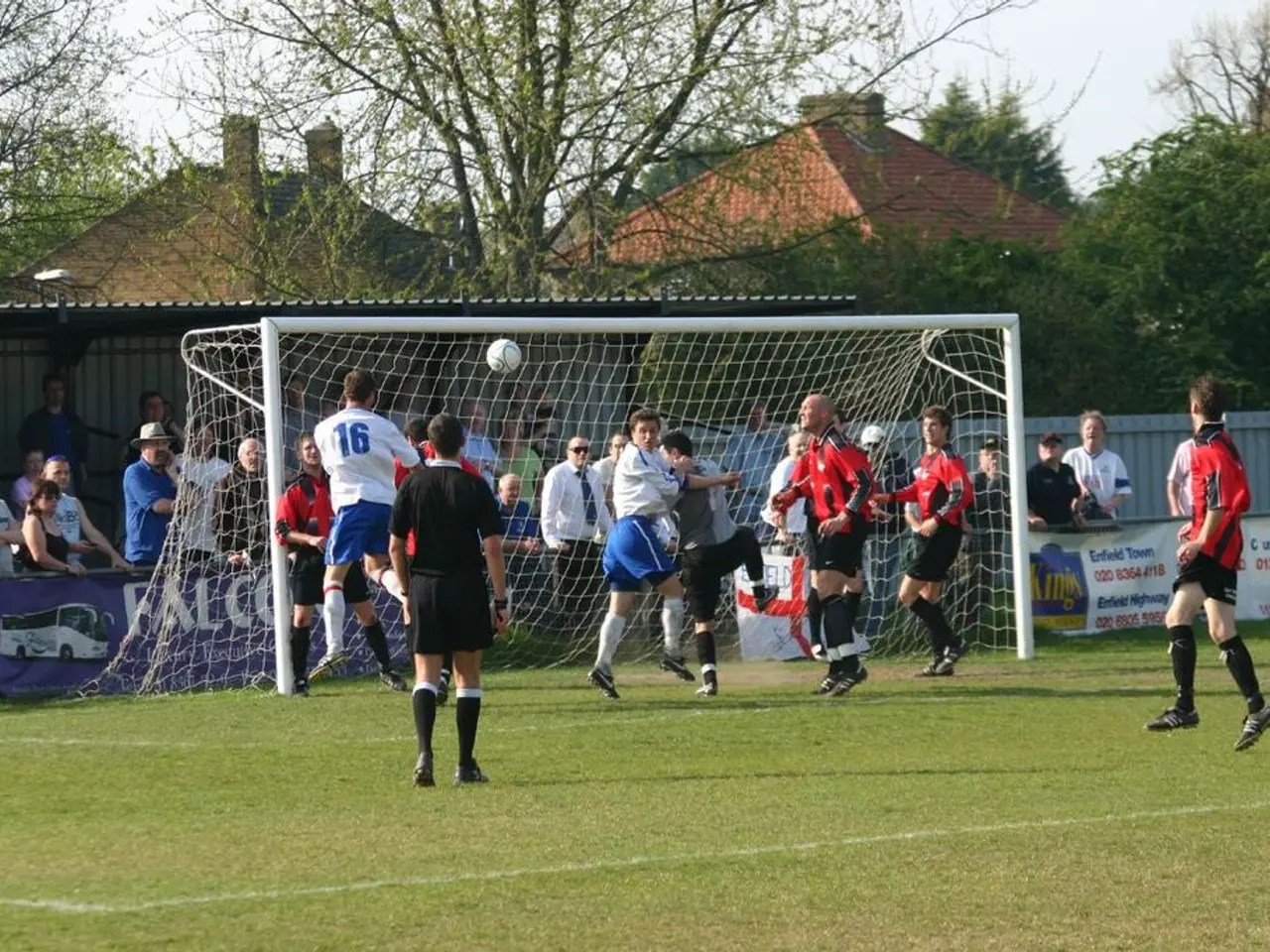Europe won't lend a hand in the Israel-Iran dispute, as stated by Trump at 22:20.
Live Ticker: Middle East War
Trump slams EU's attempts to mediate Iran-Israel conflict, saying "Iran doesn't want to talk to Europe. They want to talk to us. Europe won't be able to help."
An earthquake with a magnitude of 5.1 hit Iran's Semnan province, about 150 kilometers from Tehran. No initial reports of damage or casualties. The region experiences strong tremors frequently.
Iran rejects negotiations with the US over its nuclear program until Israel stops its attacks on Iranian targets. Foreign Minister Abbas Araghtschi calls the US "accomplices" of Israel.
Meanwhile, European foreign ministers urge Iran to engage in talks with the US, Israel's main ally. "We expect Iran to commit to talks, also with the United States," says French Foreign Minister Jean-Noel Barrot.
Iranian Foreign Minister Abbas Araghtschi describes the talks with his counterparts from Germany, France, and the UK as "serious" and says his country is ready to continue diplomatic efforts. Another meeting in the near future is possible.
Recent discussions between Israeli and Iranian forces have sparked tensions, leading to the potential deployment of US B-2 bombers in the region. But the timeline for Trump's decision on military intervention is uncertain, according to political scientist Klemens Fischer.
Experts debate the danger of Iran's hypersonic missile "Fattah 2," with one expert suggesting it could pose a problem for Israel’s Iron Dome system if Tehran's claims about the weapon are true.
Following their meeting with Iran's chief diplomat, European foreign ministers urged Iran to engage in talks with the US. "We want to continue the ongoing talks and negotiations with Iran and urge Iran to continue its talks with the USA," says British Foreign Minister David Lammy.
The US charged that the Iranian government continues to pursue a nuclear weapon, expressing hope for a peaceful resolution before the UN Security Council.
Germany is not speculating about a potential US military attack on Iran before the NATO summit, according to government spokesman Stefan Kornelius.
Professor Björn Schiffbauer, an international law expert, questions Chancellor Friedrich Merz's "dirty work" remark, urged to clarify his stance on Iran's attacks.
Iran's internet has been largely blocked for 48 hours, leaving citizens unable to communicate and poorly informed about the conflict with Israel. In Israel, 17 people were injured in a renewed rocket attack from Iran.
Iran has arrested a European on spy charges in the province of Kohgiluyeh and Boyer Ahmad. No further details are available.
Thousands of Iranians protest in Tehran and other cities against Israel, chanting anti-Western slogans and displaying images of killed military commanders, according to CNN.
Defense Minister Israel Katz has reportedly ordered intensified attacks on the Iranian capital, Tehran, targeting symbolic sites of the Iranian leadership.
France's president Macron and his European counterparts are expected to present Iran with a "comprehensive negotiating offer" at a meeting in Geneva on Friday. "Returning to negotiations is absolutely a priority," Macron emphasizes.
Former Merkel advisor Christoph Heusgen welcomes the negotiations, stating, "Anything is better than continuing the war. We must do everything to achieve a diplomatic solution."
No internet, no alarm, no cash - Iranians live under a crisis-ridden regime, struggling with power outages, jammed phone lines, and shortages of cash.
Reports suggest Israel has carried out another drone strike against a nuclear scientist in Tehran, though these claims remain unverified.
The UN nuclear watchdog IAEA warns against attacks on nuclear facilities. "Armed attacks on nuclear facilities must never happen and could lead to radioactive releases with severe consequences within and beyond the borders of the targeted state," IAEA Director General Rafael Grossi says to the UN Security Council.
Politics:While tensions between Iran and Israel continue, regional powers like Russia express concerns about the instability spreading to their borders. US military intervention, if it occurs, could have far-reaching consequences for the entire Middle East and the surrounding nations.
The chances of success for European-led diplomatic efforts to resolve the conflict between Israel and Iran hinge upon a significant shift in direction from both parties, as Israel seems uninterested in an agreement at present. Israel's current military offensive aims to destabilize the regime by targeting Iranian symbols, assets, and power structures.
The Middle East stands on the brink of catastrophe, with the region's instability potentially threatening Russia and other nations in the near vicinity. Russia fears that further escalation in the Middle East may have unpredictable consequences for its borders.
Russia's hands are tied as it officially supports Israel but has a close relationship with Iran and is waging war against Ukraine, using Iranian drones in the process. The Russian government has urged Israel's ally, the US, to refrain from attacking Iran, but its efforts are rejected by Israel.
Disarray within the Autocratic Iranian regime, as the country grapples with internet restrictions, a near total shutdown of its financial systems, and millions fleeing, creates an opportunity for external parties to press for change, though the path to a stable transition is uncertain and fraught with risk.
Politics: The ongoing war and conflicts in the Middle East not only involve Iran and Israel, but also have far-reaching consequences for regional powers such as Russia. Any US military intervention could potentially destabilize the entire Middle East and neighboring nations.
General news: The diversion of resources and disarray within the autocratic Iranian regime, due to internet restrictions, financial system shutdown, and mass migration, presents an opportunity for external parties to push for change. However, the path to a stable transition is uncertain and fraught with risk.








